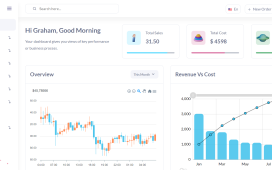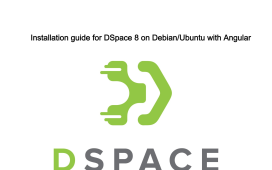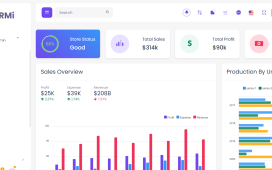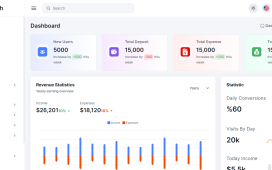Angular developers often seek backend programming languages that integrate well with Angular, ensuring smooth data exchange and efficient development of full-stack applications. The choice of backend language can depend on various factors, including project requirements, performance needs, scalability, and developer preference. Here are some of the most requested backend programming languages by Angular developers:
- Node.js: Although not a language, but a runtime environment, Node.js is extremely popular among Angular developers for building the backend. It uses JavaScript, allowing developers to use the same language on both the front and backend, which can simplify development and reduce context switching. Node.js is known for its non-blocking I/O and event-driven architecture, making it suitable for building fast and scalable network applications.
- TypeScript: TypeScript is a superset of JavaScript, offering static typing and modern JavaScript features. It is the primary language for Angular development, and its use on the backend, typically with Node.js, can provide a consistent development experience across the stack. TypeScript helps in catching errors early through its type-checking feature, which can be particularly beneficial in complex applications.
- Java: Known for its robustness, Java is a preferred choice for enterprises and large-scale applications. It offers a vast ecosystem, including numerous frameworks like Spring and Hibernate, which can be beneficial for developing scalable and secure backend services. Java’s strong typing, object-oriented features, and JVM (Java Virtual Machine) make it a reliable choice for building complex business applications.
- .NET Core/C#: For Angular developers working in Microsoft environments, .NET Core offers a powerful and versatile platform for building backend services. C#, the primary language used with .NET Core, is a statically-typed, object-oriented language that provides features like LINQ for efficient data manipulation. .NET Core is cross-platform, supporting development and deployment on Windows, Linux, and macOS.
- Python: With frameworks like Django and Flask, Python is a favored choice for rapid development of web applications. It is particularly popular for startups and in scenarios where time-to-market is critical. Python’s simplicity, readability, and extensive libraries make it suitable for a wide range of applications, from simple web services to complex machine learning algorithms.
- PHP: While not as dominant as it once was, PHP remains a widely used language for web development. Frameworks like Laravel and Symfony provide modern, elegant syntax and tools for building robust web applications. PHP is a good option for projects with a tight budget or those that require hosting on shared servers.
- Ruby: Ruby, with the Ruby on Rails framework, is another option for rapid application development. It emphasizes convention over configuration, making it possible to build feature-rich applications with less code. Ruby on Rails is known for its “don’t repeat yourself” (DRY) principle, which encourages reusable and maintainable code.
The choice of backend language will depend on the specific needs of the project, including performance requirements, scalability, development speed, and the existing ecosystem or expertise within the development team.







Recent Comments